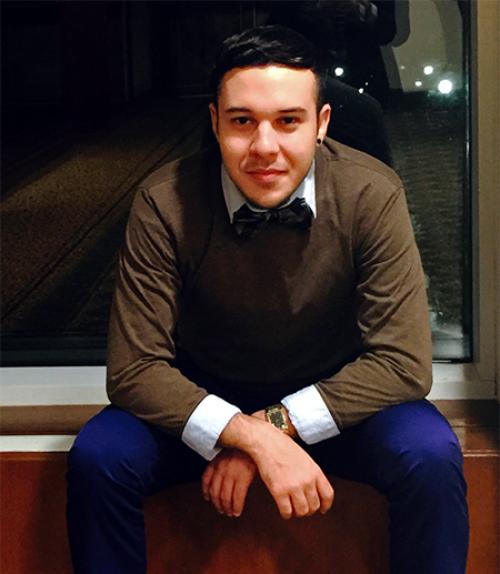Andy Alfonso
Spanish Literature
Miami, FL
What was your most profound turning point while at Cornell?
I would have to say that my most profound turning point while at Cornell occurred during my first semester as a junior. I had just transferred in, and I was going through a rough time while trying to figure out which courses to take. I thought I had already explored the sciences to my satisfaction and that it was time to delve into the humanities, especially into Spanish and Latin American literature. At that point, I was scared that my friends would think that I was running away from the sciences because they were too difficult for me to handle, so I forced myself into taking two upper-level biology courses to "save my dignity." Meanwhile, I decided to take on four literature courses, in order to set in motion my humanities track. It was a demanding semester: not only was I trying to balance my schedule with extracurricular activities, but I was also trying to find the right community for me as a new member of the Cornellian family. It was then when I met with my advisors and told them that I had decided to fully concentrate on my student career in literature, and that this didn't mean that I would set apart the sciences (as most people would think), but rather that I was going to find a way of merging my knowledge of physics, chemistry, and mathematics with my literary studies. They supported my decision and stated that they were proud of me because I had shown the qualities of a true Cornellian: strategic, prudent and (on a humorous tone) determined to change majors.
How did any of your beliefs or interests change during your time at Cornell?
Due to an orthodox political education in Cuba, my studies of the codependent nexus between literature, politics and ideology in the island were confined to a mono-perspective analysis of the tension imperialism/anti-imperialism, that is, the U.S.-Cuba tension. However, this one-sided perception of the topic changed upon my arrival to the United States, especially at Cornell, where I have delved into other facets of the Cuban-American bind from a more critical approach. As a consequence of this, my conception of the Caribbean island has started to tease out the complexities of a situation that cannot be neatly fitted into the two traditional political constructions that present Cuba either as a Davidic protector of the Americas (the conservative view) or as a post-socialist regime en route to undertake a post-dictatorship transition (the liberal view).
What are your plans for next year; where do you see yourself in 10 years?
Next year, I will attend Princeton as a PhD student in Spanish and Portuguese languages, literatures and cultures. This opportunity will allow me to continue delving into the problematics that arise form the "aesthetics-politics-ethics" ties in contemporary Cuba. In 10 years, I hope to be teaching and researching at an upper-level, top-ranked research institution.
Anything you'd like to add about yourself that these questions didn't address?
As a Cuban immigrant who has been in the U.S. for about five years, I have to thank my family (part of which still resides in Cuba, including my mother) for instilling in me the values of education, sacrifice and determination. Without their support, especially that of my parents, I wouldn't have achieved any of the aforementioned accolades. They are my emotional drive to achieve academic excellence.




